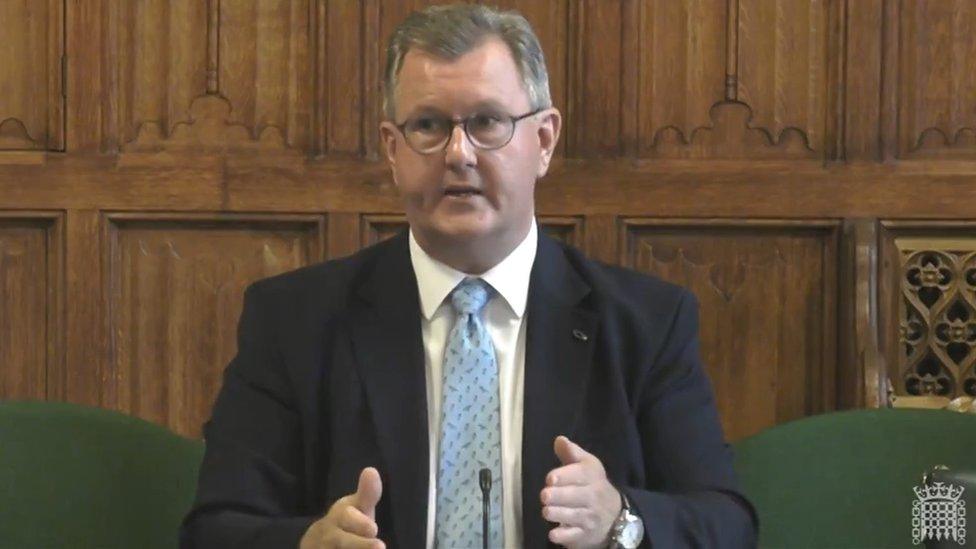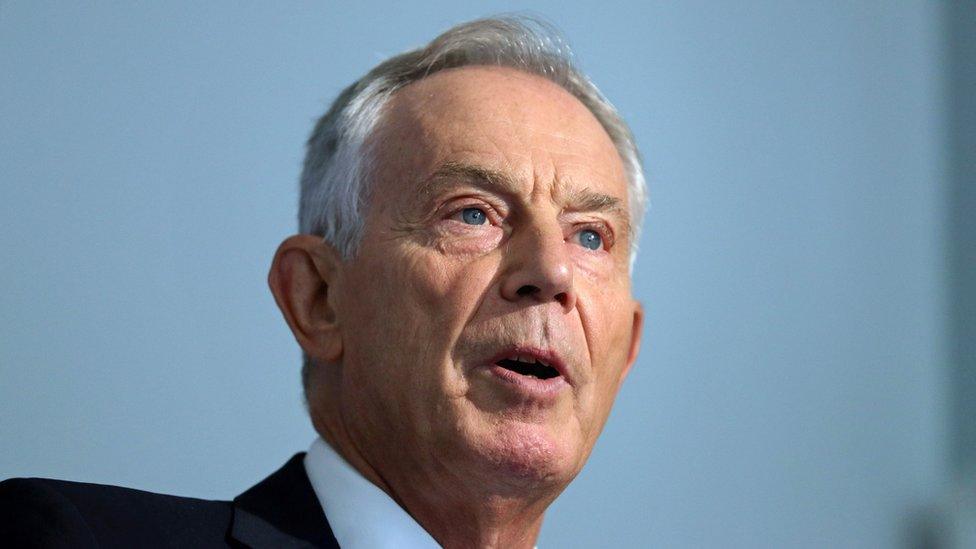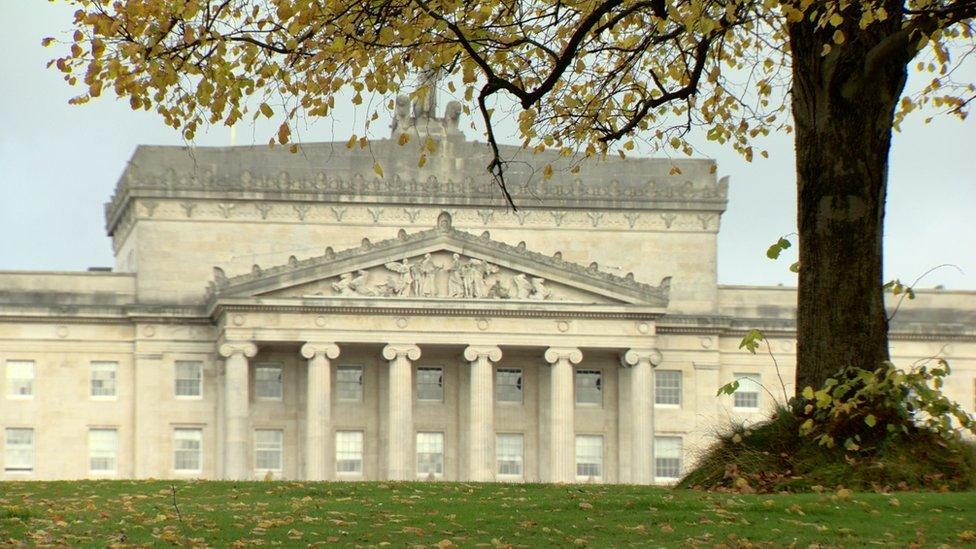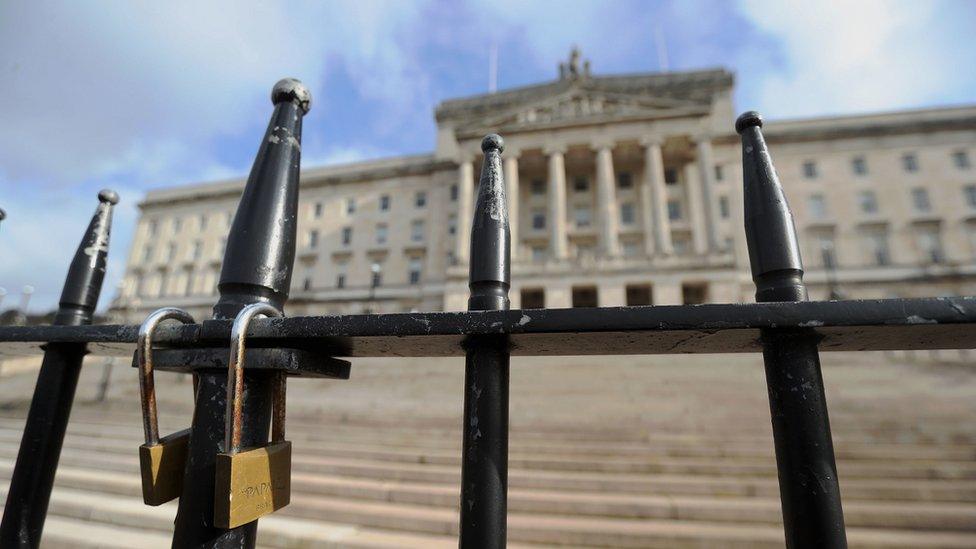Windsor Framework: DUP sends Brexit deal proposals to government
- Published
- comments

Sir Jeffrey Donaldson spoke at an inquiry into the effectiveness of the power-sharing insitutions
The Democratic Unionist Party (DUP) has submitted a paper to the UK government with proposals on how to address key issues with the Windsor Framework.
Sir Jeffrey Donaldson made the comments to a Westminster committee examining how well the institutions set up by the Good Friday Agreement operate.
The DUP leader said he wanted to give time for the government to respond and respect the integrity of the process.
But any outcome would become "a matter of public record", he added.
The Windsor Framework made changes to the Northern Ireland Protocol aimed at significantly reducing the number of post-Brexit checks required on goods travelling between Northern Ireland and the rest of the UK.
The Westminster committee hearing was part of an inquiry by the Northern Ireland Affairs Committee.
The inquiry will consider changes to make the Stormont institutions work better.
It will examine how effective institutions such as the Northern Ireland Assembly and the Northern Ireland Executive have been in enabling cross-community, stable and effective government.
'Fair, reasonable and balanced'
Sir Jeffrey warned any preparatory work already under way with civil servants exploring the components of a programme for government did not mean a return to power-sharing.
"I am not saying that means the restoration of devolution in the short term is inevitable, a lot depends on how the government responds to the proposals we have put forward, which we believe are fair, reasonable and balanced," he told the committee.
Northern Ireland has been without a functioning power-sharing government since February 2022, when the DUP withdrew from the executive due to its protest over the Northern Ireland Protocol.
The decision to withdraw from Stormont was made "with great reluctance", the party leader said.
Sir Jeffrey added that he felt it was a "proportionate decision" that would buy time for negotiations to take place while department ministers were in post.
"I was hoping that within that period, that we would see meaningful engagement and negotiation leading to solutions in terms of the concerns that Unionists have about the agreement," he said.
Alliance Party leader Naomi Long, who was also giving evidence to the Westminster inquiry, said her party's end goals were in some ways not so different to those set out by Sir Jeffrey.
"We would prefer a normalised government and opposition system in Northern Ireland where we had a better ability to flex and change government," the committee heard.
"That would be the end goal, but we recognise we need to do that incrementally in terms of building trust and confidence within the community, and so the changes we're recommending are a step towards that."
'No incentive' for DUP return
Mrs Long said that she did not want to exclude any party from Stormont.
"I don't want the DUP to be outside the executive, I want the DUP to be inside the executive," she said.
"But, I believe for as long as they are able to keep everybody else outside the executive, there's no incentive for them to go in.
"I believe that if they thought that we were going to move on to government without them then they would be back at the table doing their jobs."
The committee has already heard evidence from a range of political voices, including former Prime Minister Sir Tony Blair, former DUP leader Baroness Foster and ex-civil servants David Sterling and Andrew McCormick.
Speaking to the committee in March, Sir Tony warned that constant political disruption in Northern Ireland would create difficulty for the union.
He said he wanted Northern Ireland to remain part of the UK but politically there would have to be something stable.
The committee will hear evidence from the leaders of the Ulster Unionist Party and Social Democratic and Labour Party on 5 July.
- Published16 March 2023

- Published3 December 2022

- Published12 May 2022
